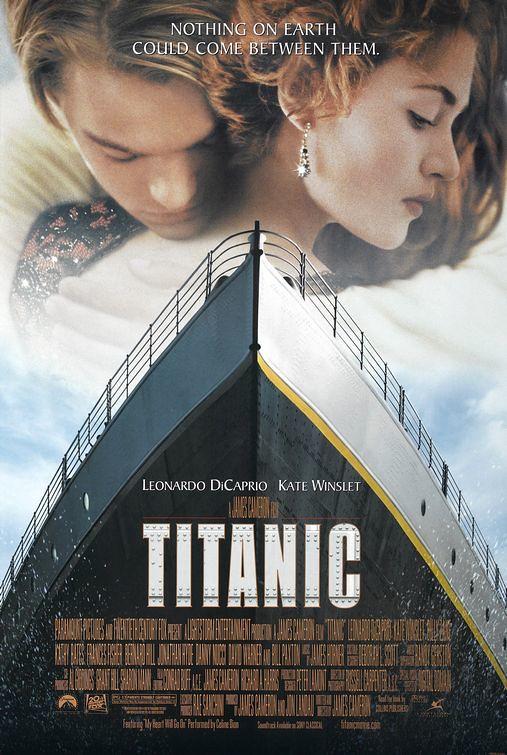After 25 years of fans enjoying one of the greatest love stories of all time, “Titanic” is back in theaters to capture another generation with Jack and Rose’s tragic romance.
The film, with a gorgeous soundtrack and an incredibly well-designed setting that captures both beauty and horror, has stood the test of time and remains an incredible love story for the ages.
“Titanic” begins as a romance between Jack, played by Leonardo DiCaprio (and yes, it is a bit difficult to separate him from the creep who dates way-too-young women), and Rose, played by Kate Winslet. Rose is an upper-class young woman from a family that has fallen on hard times, forced into an arranged marriage with the abusive Caledon. Jack, a poor nomadic artist, stops Rose from committing suicide, and the two easily connect and fall in love, but classism from Rose’s family and the arranged marriage threaten to tear them apart.
About halfway through the film, the Titanic hits an iceberg, and the tone radically shifts as Jack and Rose fight to stay alive as the ship slowly sinks and as Rose’s abusive fiance threatens to kill them both.
Interestingly, Jack and Rose’s love story, still very tender and believable despite it happening in only a few days, reverses the gender roles present in many film relationships, including the abusive engagement between Rose and Caledon. It is Rose who initiates most of the risque things in their relationship, holds the societal power and is ultimately changed by the relationship.
The actors have incredible chemistry as their characters are changed by each other on the ship. You can buy that in the course of three days. These two are ready to run away with each other. They also sell the tragedy of the situation really well; their surety throughout that they will live and their determination to make it to the harbor makes the ending all the more tragic. Even if you go in knowing how the film ends, there are moments when you think they’ve made it out, that they’ll get their happily-ever-after.
The soundtrack of the film also captures the horror of the event, notably the music that the band plays as the ship sinks. The sweeping pieces perfectly capture the feelings and era of the movie but stand well on their own as a collection of beautiful pieces. Hearing it in surround sound was a wonderful experience, and the tunes will definitely be stuck in my head for the next week.
Despite having a stellar story, “Titanic” has some issues with historical accuracy. While the way the ship sank and some details about deaths on the ship are accurate, some of the socioeconomic commentaries about the third-class passengers being locked up while the ship sank have been debunked. Although there is strong evidence that the band played the entire time that the ship sank, the band playing “Nearer My God to Thee” is an unfounded myth.
Real-life figure William Murdoch’s family has criticized the film as being inaccurate in its portrayal. The film portrays him as a murderer, while in reality, he was able to launch ten lifeboats and save as many lives as he could. Scott Neeson of 20th Century Fox later traveled to Murdoch’s town to issue an apology, which most locals considered to be too late.
The year it came out, Titanic won numerous awards, including “best picture” at the Academy Awards and “best motion picture- drama” at the Golden Globes, and the Library of Congress shelved it for being “culturally, historically or aesthetically significant.” Titanic was also the first film to gross over a billion dollars and held the “highest earning movie” spot until another Cameron film, “Avatar” replaced it.
Titanic is one of those films that everybody knows about, even after 25 years. Everyone knows the “Hold me Jack!” scene. Everyone knows the “draw me like one of your French girls” scene and the “king of the world” scene. The song “My Heart Will Go On” has become iconic over the decades as a tune for love and loss. And all of this is for good reason.
Titanic is timeless. It’s a schmaltzy, grand, huge movie, but it is about the sinking of the Titanic, which has been the subject of numerous poems, musicals, and other films for a reason. A ship known as unsinkable, described as the grandest ship of all time: sinks in an era when the power of the aristocracy and old money was rapidly declining, only years before World War I changed the face of Europe and the world.
Titanic works not only because of the grandness of it all or because of the sweet love story but because it has something to say about class and love and reflects that “end of an era” tension between the rich and poor, the breaking of traditional class roles and the fear that the rich had of the lower class, as well as the love that can overcome the class divides.








